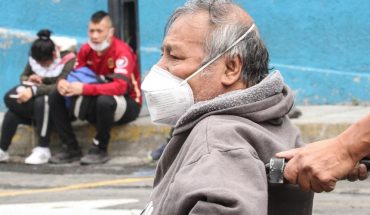After in July, PT Senator Geovanna Bañuelos was removed from the discussion in the plenary session of the Senate an initiative of a Mental Health Act, we now have the surprise that tomorrow, in the Chamber of Deputies Health Committee, a new predictamen expected to be approved immediately to move to the plenary will be discussed, even if it contains several of the errors by which the legislator withdrew its initiative
As far as we know, the initiative they will discuss tomorrow in the Health Committee was proposed by the same president, Miroslava Sánchez Galván, with the support of Deputy Coordinator Tatiana Clouthier and the endorsement of the Undersecretary of Health Prevention and Promotion, Hugo López Gatell.
But the predictamen, which will be discussed tomorrow and you can read here, has several background problems.
Here are six reasons why this opinion should be paused until it is rethented, enriched, and consulted:
It fuses addictions with mental health, which, even though they may have glasses in common, are different things. According to the Convention on the Rights of Persons with Disabilities (CDPD) and the World Health Organization (WHO) The mental disorder causes a person to consider themselves a person with psychosocial disability.
In the case of a law directly affecting persons with disabilities, it should necessarily be consulted with persons with disabilities and their organizations, as marked by the Convention on the Rights of Persons with Disabilities. This hasn’t been done. The Supreme Court of Justice accumulates complete rules and part of laws that have been declared unconstitutional based on the lack of this obligation. A public, prior, informed query in accessible formats, among other features that has not been performed.
The case for the detention of a person diagnosed with an addiction without his informed consent (Article 74a, Fraction III) is so broad that the decision of the same person is at risk, in saying that it can be exercised by a representative. Being diagnosed by a person with an addiction can result in the imposition of involuntary treatments and hospitalizations, which is common in Mexico’s current mental health care system for people who are labeled with mental disorders.
The initiative extends a model of substitution of the will (contrary to Article 12 of the CDPD) by which it is the representative who decides and provides for an extraordinarily broad exception in so-called “urgent cases” or when it is verified that the treatment is best suited to meet the patient’s needs. That is, it will suffice for a doctor or a panel of doctors to appreciate that a person has an addiction, and that it is an urgent case (without specifying exactly what that means), or when it is verified that the treatment is best suited to meet the needs of the person, so that they can proceed to involuntary detention and consequent treatment.
The opinion uses outdated language to refer to people who have problematic substance use. The incorporation of addictions into the mental health chapter encourages stigma and discrimination towards these people. The predictamen reinforces the idea that the issue of mental health is only for certain groups: people with “mental health disorders” or “addicted people”. The proposal is not made with the idea that anyone can have a psychosocial difficulty and that the right to mental health is of all people.
The proposal provides for a definition of addiction that leads to arbitrary results. Who are the agents who will determine that a person has an addiction? Above all, what are the consequences of being labelled as an addicted person? General Health Act.
It contraviouses international recommendations: this standard already applies to people labeled “mental disorder”, but the proposal to be approved extends the same consequences for people labeled as addicts. It is not consistent with the right to informed consent under international human rights law, as stated by the Committee on Economic, Social and Cultural Rights (2017) in its last review to Mexico.
What what we do at Animal Politics requires professional journalists, teamwork, maintaining dialogue with readers and something very important: independence. You can help us keep going. Be part of the team.
Subscribe to Animal Politics, receive benefits and support free journalism.#YoSoyAnimal





